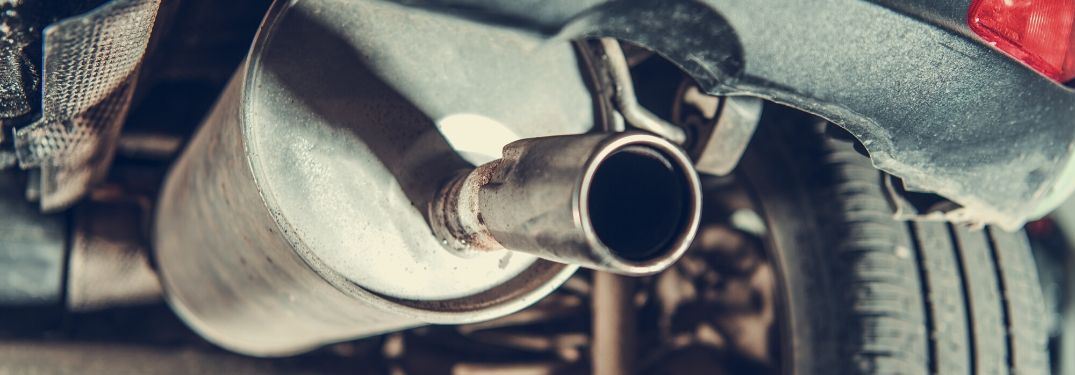As environmental concerns rise and government regulations become stricter, emissions testing has become an essential process for vehicle owners in Atlanta, GA. Conducted to ensure that vehicles meet the area’s air quality standards, an emissions test is necessary to renew your vehicle registration. Passing this test not only keeps your car legal on the road but also helps protect the environment by reducing harmful pollutants.
Preparing for an emissions test in Atlanta, GA, can make the process smoother and increase your chances of passing on the first attempt. This guide will walk you through what an emissions test entails, why it’s important, and how to get your car ready for a successful test.
What is an Emissions Test?
An emissions test evaluates the amount of pollutants your vehicle emits into the air. The test primarily focuses on measuring substances like carbon monoxide, nitrogen oxides, and hydrocarbons that are released by your car’s exhaust system. In Atlanta, GA, emissions tests are mandatory for gasoline-powered vehicles from the model year 1999 or newer. Vehicles three model years old or newer are exempt from testing.
The emissions test aims to ensure that vehicles meet federal and state environmental standards, which help control air pollution and improve public health.
Why Emissions Tests Are Crucial in Atlanta, GA
Atlanta, like many metropolitan areas, has faced challenges with air pollution. To combat this, emissions testing is required for vehicles registered in the area to maintain compliance with Georgia’s Clean Air Force regulations.
Failing an emissions test atlanta ga, could result in being unable to renew your vehicle registration, which can lead to fines or penalties if you drive with expired registration. Proper preparation ensures you meet environmental standards while avoiding unnecessary expenses or delays.
Steps to Prepare Your Vehicle for an Emissions Test
Getting your vehicle ready for an emissions test in Atlanta, GA, involves a series of simple yet crucial steps. These steps ensure your car is running efficiently and emitting minimal pollutants.
1. Perform Regular Maintenance
Routine maintenance is critical for ensuring your car is in good condition before an emissions test. This includes:
- Oil Changes: Old, dirty oil can cause your vehicle to release more pollutants. Change your oil if it’s due.
- Air Filter Replacement: A clogged air filter can negatively impact engine performance and emissions. Replacing it improves airflow and ensures cleaner emissions.
- Check Spark Plugs: Worn-out spark plugs can cause incomplete combustion, leading to higher emissions. Replace them if necessary.
2. Inspect the Check Engine Light
A lit check engine light is an automatic failure for emissions tests in Atlanta, GA. If your check engine light is on, have your vehicle inspected by a professional mechanic to diagnose and address the issue. Common causes include faulty oxygen sensors, a loose gas cap, or a malfunctioning catalytic converter.
3. Warm Up Your Car Before the Test
Your car’s engine and catalytic converter work more efficiently when warm. Drive your vehicle for at least 20 minutes before heading to the testing center to ensure all systems are operating at optimal temperatures.
4. Use Fuel Additives to Clean the Engine
Fuel additives designed to clean your engine and fuel injectors can reduce emissions by removing carbon buildup. Add the cleaner to your fuel tank a few days before the test and drive your car to allow the additive to circulate.
5. Ensure Proper Tire Pressure
While tire pressure doesn’t directly affect emissions, it can impact how smoothly your vehicle runs during the test. Check your tire pressure and inflate your tires to the manufacturer’s recommended levels.
6. Fill Your Gas Tank
A nearly empty gas tank can cause your vehicle’s evaporative emissions control system to fail, leading to higher emissions. Ensure your gas tank is at least half-full before the test.
7. Run a Pre-Test Inspection
Consider having your vehicle pre-inspected by a trusted mechanic or emissions specialist. They can identify potential issues that might cause your car to fail the test. Addressing these problems beforehand can save time and money.
8. Avoid Modifications to Your Exhaust System
Modifications, such as removing or tampering with the catalytic converter, can increase emissions and result in automatic failure. Ensure your exhaust system complies with local regulations.
9. Clear Out Excess Weight
Extra weight in your vehicle can put additional strain on the engine, potentially leading to higher emissions. Remove unnecessary items from your car to help it run more efficiently during the test.
10. Check Your Battery and Charging System
A weak battery or charging system can affect your car’s onboard diagnostics (OBD) system, which is used during the test to analyze emissions. Ensure your battery is in good condition and fully charged.
What to Expect During the Emissions Test
When you take your vehicle for an emissions test in Atlanta, GA, you can expect the following steps:
- Visual Inspection: The technician will inspect your vehicle’s exhaust system and check for visible smoke or tampering.
- Onboard Diagnostics (OBD) Test: For most modern vehicles, the emissions test involves connecting a computer to the car’s OBD system to check for fault codes and monitor emissions performance.
- Tailpipe Test: Older vehicles may require a tailpipe test, where a probe is inserted into the exhaust pipe to measure emissions directly.
The process typically takes about 20 minutes. If your vehicle passes, you’ll receive a certificate to renew your registration. If it fails, you’ll be provided with diagnostic information to address the issues.
What to Do If Your Vehicle Fails the Test
Failing an emissions test in Atlanta, GA, can be frustrating, but it’s not the end of the road. Follow these steps:
- Review the Results: Understand the reason for the failure by reviewing the report provided by the testing center.
- Repair the Issue: Take your vehicle to a certified mechanic to address the problem. Many facilities specialize in emissions-related repairs.
- Retest: After making the necessary repairs, return to the testing center for a retest.
Georgia law allows a free retest within 30 days of the initial test at the same testing location.
Tips for Long-Term Compliance
- Stick to a Maintenance Schedule: Regular servicing keeps your car running efficiently and reduces emissions.
- Monitor Fuel Economy: A drop in fuel economy can indicate an issue affecting emissions. Address it promptly.
- Stay Informed: Familiarize yourself with Georgia’s emissions testing requirements and updates to ensure ongoing compliance.
Conclusion
Preparing for an emissions test in Atlanta, GA, doesn’t have to be stressful. By following these practical steps, you can ensure your vehicle meets environmental standards and passes the test on the first try. From routine maintenance to addressing check engine lights, proactive care is the key to success. Not only does this keep your car roadworthy, but it also contributes to a cleaner, healthier environment for everyone in Atlanta.
Also Read
- ► Maximize Efficiency with High-Performance Blasting Equipment and Steel Shot
- ► Experience Quality with Umar Garment, Top Polo Shirts Exporter in Pakistan
- ► Case Study Assignment Service | Professional Writing Experts: MakeAssignmentHelp
- ► Commercial Fence Installation – A Complete Guide
- ► Machined Components Manufacturer for Industrial Demands
- ► Reconditioned Range Rover Engines: Reliable Performance for Your Vehicle
- ► Fildena Super Active: Fast-Acting ED Solution with Sildenafil – lovemymed
- ► Why Garnet Jewelry is Perfect for Brides
- ► Discover Exceptional Dental Treatments at Trust Care Dental in McAllen, TX
- ► Why Wrstbhvr Hoodies Are a Staple for Your Wardrobe
- ► Ace Your Grades with Professional Assignment Help Services
- ► Teeth Scaling: Your Path to Healthier Gums
- ► Lyrica 150 mg: Uses, Benefits, and Side Effects
- ► How the Best SEO Experts in Bangladesh Drive Conversions for Growing E-commerce Brands
- ► Kisan Karj Mafi Yojana





